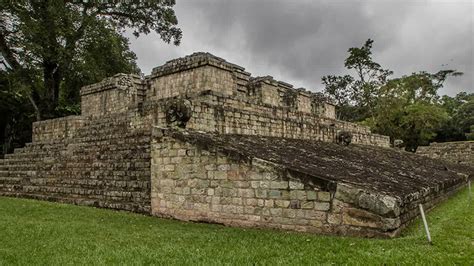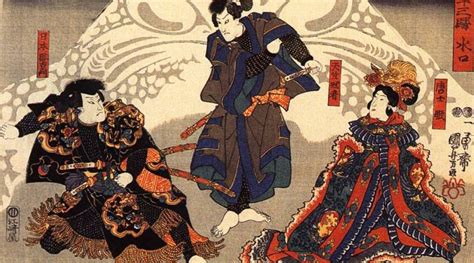Explore Kenya’s rich history from early settlers to modern development. Learn about British rule, Mau Mau rebellion, independence, and post-independence political and economic development.
Early Settlers in Kenya
Contents
The early settlers in Kenya date back to the pre-colonial period, when various indigenous communities inhabited the region. These communities were primarily engaged in agriculture, trade, and animal husbandry, and had well-established social and political structures. The arrival of Arab traders and European explorers in the 15th and 16th centuries marked the beginning of external influence in the region.
During the late 19th century, the British established their presence in Kenya through a series of treaties and agreements with local chiefs. This paved the way for the influx of British settlers, who sought to exploit the fertile land for agricultural purposes. The settlers, known as white Kenyans, were granted large tracts of land, displacing the indigenous communities and altering the social and economic landscape of the country.
In addition to the British settlers, there were also Indian migrants who came to Kenya to work on the construction of the Uganda Railway. These migrants played a significant role in various sectors of the economy, particularly in trade and commerce.
The arrival of the early settlers in Kenya marked the beginning of significant changes in the country’s demographics, land ownership, and cultural dynamics. The legacy of their presence continues to influence Kenya’s social and political landscape to this day.
Colonial Period and British Rule
The colonial period in Kenya began in the late 19th century when the European powers, particularly the British, started to colonize the African continent. The British colonial rule in Kenya started in the late 1800s and lasted until Kenya gained its independence in 1963. During this period, Kenya was under the control of the British government and was considered part of the British East Africa Protectorate.
British rule in Kenya had a significant impact on the political, economic, and social landscape of the country. The British authorities implemented policies that favored the European settlers, leading to the dispossession of land from the local African communities. The colonial government also enforced restrictive laws that limited the rights and freedoms of the indigenous population.
The British rule in Kenya also saw the introduction of cash crop farming, which led to the transformation of the country’s agricultural sector. Large areas of land were allocated to European settlers for the production of crops such as coffee, tea, and sisal, which were primarily for export to the European market.
Moreover, the British colonial administration in Kenya established a system of indirect rule, which allowed local African chiefs to govern their communities under the oversight of the British authorities. While this system helped maintain order and stability, it also perpetuated the marginalization of the African population and reinforced the divide between the ruling elite and the rest of the society.
Overall, the colonial period and British rule in Kenya left a lasting legacy that continues to influence the country’s development and societal dynamics to this day. The impact of this period has shaped the political, economic, and social structures of Kenya, and has contributed to the complexities of its post-independence history.
Mau Mau Rebellion and Independence
The Mau Mau Rebellion in Kenya was a significant period in the country’s history, as it marked the struggle for independence from British colonial rule. The rebellion, which took place between 1952 and 1960, was primarily led by the Kikuyu people who sought to reclaim their land and freedom from British settlers. This period saw widespread violence and conflict as the Mau Mau fighters engaged in guerrilla warfare against the British forces.
Many Mau Mau members were arrested, tortured, and even killed by the British authorities in an attempt to suppress the rebellion. The British forces implemented harsh tactics, including the use of detention camps and forced labor, to quell the uprising. However, the Mau Mau fighters remained resilient and continued to fight for their independence.
It was not until 1963 that Kenya finally gained its independence from British colonial rule. The Mau Mau Rebellion played a crucial role in the country’s path to independence, as it brought international attention to the plight of the Kenyan people and the injustices of British colonialism. The rebellion served as a catalyst for change and ultimately paved the way for Kenya to become a sovereign nation.
The period following independence was marked by efforts to rebuild the nation and establish a new government. Jomo Kenyatta, a key leader in the fight for independence, became the first President of Kenya and sought to unite the country’s diverse ethnic groups under a single national identity. Though the Mau Mau Rebellion brought about independence, it also left a legacy of trauma and conflict that continued to impact Kenya’s social and political landscape for years to come.
Post-Independence Political History
After gaining independence from British rule in 1963, Kenya entered into a new era of political history. The post-independence period saw significant changes in the country’s political landscape, with a focus on establishing a stable government and prosperous nation. The first President of Kenya, Jomo Kenyatta, led the country through the early years of independence, focusing on nation-building and economic development.
However, the post-independence political history of Kenya also saw challenges, including issues of political corruption and ethnic tensions. The rise of multi-party politics in the 1990s brought about political reforms and increased political participation, leading to a more diverse political landscape and the introduction of a new constitution in 2010.
Following the 2007-2008 post-election violence, there was a significant push for political reform and reconciliation, leading to the establishment of a coalition government and efforts to address historical injustices and promote national unity. The post-independence political history of Kenya has been marked by both progress and challenges, with ongoing efforts to achieve political stability and inclusive governance.
Modern Economic and Social Development
The modern economic and social development of Kenya has been a fascinating journey of growth and change. Since gaining independence from British rule in 1963, Kenya has made great strides in improving its economy and the welfare of its people.
One of the key drivers of Kenya’s modern economic development has been its focus on diversifying its economy. The country has moved away from an overreliance on agriculture and has expanded into sectors such as services, tourism, and manufacturing. This diversification has helped to create new job opportunities and boost economic growth.
Additionally, Kenya has invested heavily in infrastructure development, including the construction of roads, ports, and airports. This has not only improved the country’s transportation networks but has also facilitated trade and investment, contributing to overall economic development.
Kenya’s social development has also seen significant progress in recent decades. The government has made strides in improving access to education, healthcare, and basic services for its citizens. Efforts to reduce poverty, improve food security, and address environmental sustainability have also been a focus of the country’s development agenda.
Furthermore, Kenya has been proactive in harnessing technology and innovation to drive social and economic development. The country has seen a surge in mobile phone usage, with mobile money services such as M-Pesa revolutionizing the way people access financial services and conduct transactions.












